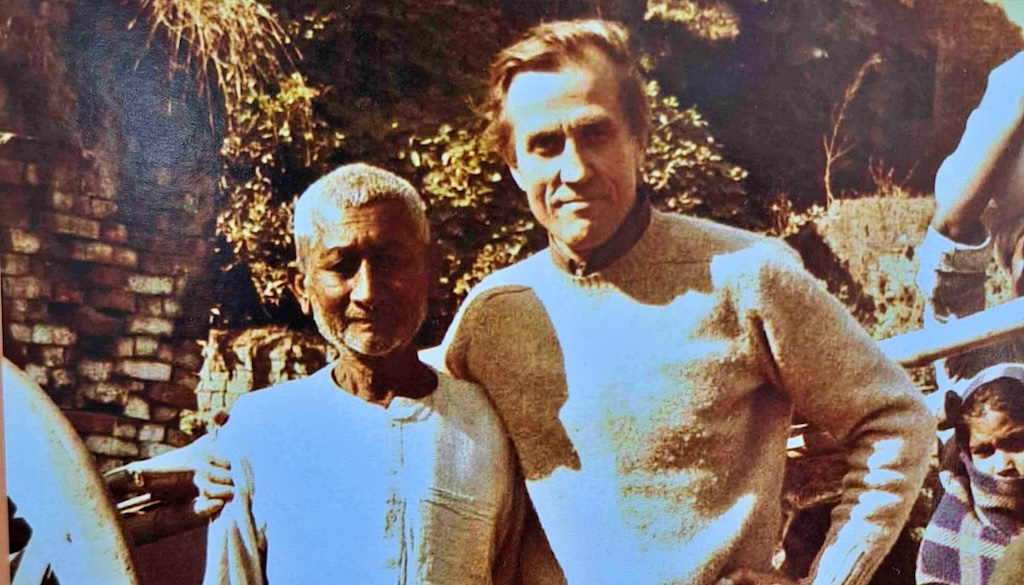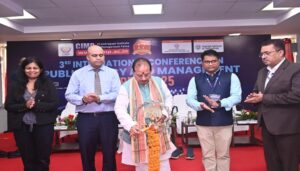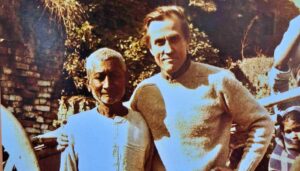Walter Hauser Returns to Bihar: American Historian’s Ashes to Be Immersed in Ganga as Per His Final Wish

Patna: Walter Hauser, an American academic whose lifelong fascination with India’s peasant movements reshaped the global understanding of Bihar’s socio-political landscape, is finally home. Five years after his death, Hauser’s family has travelled from the United States to Patna to fulfil his final wish: the immersion of his ashes in the Ganga, in the city he considered his spiritual home.
Hauser, a professor at the University of Virginia, first arrived in Bihar in 1957 as a doctoral student from the University of Chicago. At the heart of his research was Swami Sahajanand Saraswati, the formidable leader of India’s peasant movement and founder of the Bihar Provincial Kisan Sabha in 1929. That initial academic curiosity blossomed into a lifelong bond with the state and its people. So deep was his admiration for Bihar and its agrarian legacy that he often described himself as a “son of Bihar”.
“Though born in Virginia, my father lived for Bihar. His heart never left Patna,” said Michael Hauser, the late professor’s son, who returned to the city this week with his wife Elizabeth and sister Sheila. “We’re here to fulfil his last wish—to immerse his ashes in the Ganga, the river he revered.”
Joining them are two of Hauser’s former students—William R. Pinch and Wendy Singer—who travelled to Patna to honour their mentor’s memory. A steamer has been booked for June 26 for the immersion ceremony, which the family is observing in accordance with Hindu rites, as per Hauser’s request.

Walter Hauser’s journey with Bihar began with his desire to study the socio-economic struggles of Indian farmers. It led him to the towering figure of Swami Sahajanand Saraswati, whose influence on agrarian politics during the British Raj shaped much of Hauser’s research. He lived for extended periods in places like Bihta, closely engaging with local communities, historians, and even the family of the Swami.
In 1961, Hauser completed his PhD with a dissertation on the Bihar Kisan Sabha, laying the foundation for what would become a career dedicated to Indian agrarian history. He later became a professor at the University of Virginia, where he inspired a new generation of scholars to explore India’s political movements.
However, Hauser’s work was not without controversy. During his time in Bihar, he acquired rare documents related to Swami Sahajanand, some of which were taken back to the US for research purposes. Concerns were later raised by local historians and the Swami’s family, prompting efforts to repatriate the documents. Eventually, they were returned and archived in Bihar’s official repositories.
Hauser’s seminal book, based on his doctoral research, was published decades later in 2019—the same year he passed away, aged 92. Despite the delayed publication, the work stands as one of the most comprehensive studies of India’s peasant uprisings.
His connection to Bihar endured for over six decades. “This is unprecedented,” said Nitish Mishra, Bihar’s industry minister. “Hauser’s scholarship placed Bihar’s farmer movements on the global map. His return—even in death—shows the depth of that bond.”
In the words of his daughter, Sheila: “Our father might have been American by birth, but his soul belonged to Bihar. This land gave him purpose. We’re only here to give him back to it.”
As the Ganga flows through Patna, it will carry with it the ashes of a man who once crossed oceans to discover a truth buried in the fields of Bihar—and found a home in its people.







